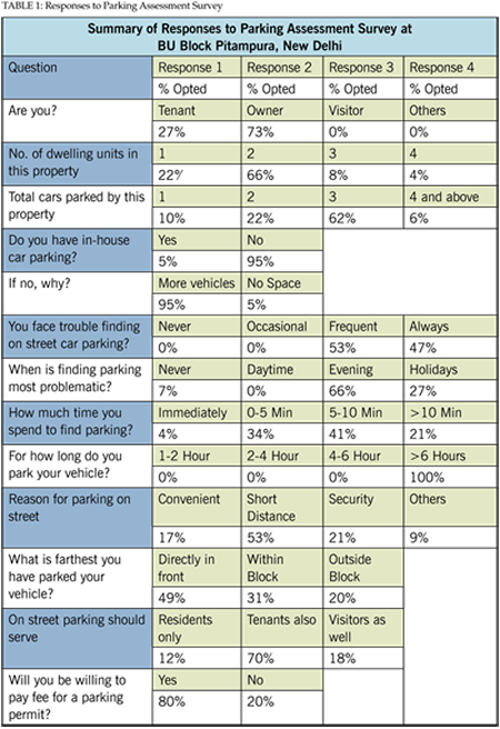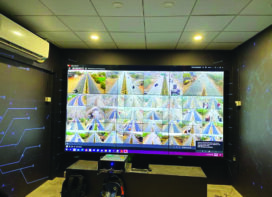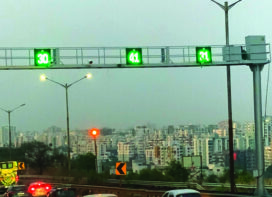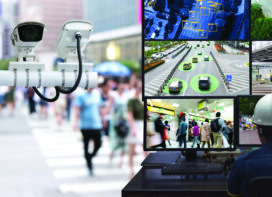Delhi faces a chronic shortage of residential parking space as noticed in a survey conducted by the authors. After a detailed study, they recommend an overhaul of parking policies, a shift from personal to shared parking and integrating parking with the interchange points of the public transport networks as far as possible.
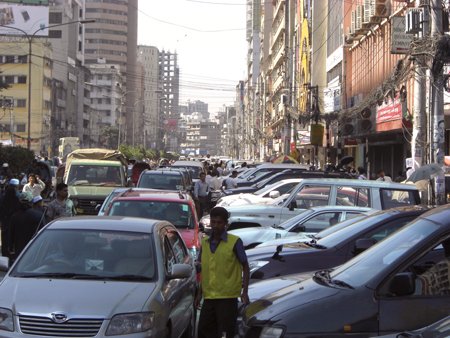 Delhi is one of the few metropolitan cities in the world where parking in most of the public spaces is permitted ? almost for ?free?. This is virtually undemocratic since one sector of society is subsidised to occupy public land for private use without providing any benefit to the larger public. Car boom is aggressively encroaching upon the scarce urban commons. If on an average three car spaces are assumed per car per day in the residential, office and shopping areas, then the current fleet occupies nearly 10% of Delhi?s urbanised area.
Delhi is one of the few metropolitan cities in the world where parking in most of the public spaces is permitted ? almost for ?free?. This is virtually undemocratic since one sector of society is subsidised to occupy public land for private use without providing any benefit to the larger public. Car boom is aggressively encroaching upon the scarce urban commons. If on an average three car spaces are assumed per car per day in the residential, office and shopping areas, then the current fleet occupies nearly 10% of Delhi?s urbanised area.
The existing policy perpetrates hidden subsidy to rich car owners as the cost of using up scarce and valuable urban space for parking is not recovered through proper pricing and taxes. As available surface areas are becoming increasingly clogged with cars, city governments are now planning to build extremely expensive multi-storeyed car parks in prime areas.
Without a pricing and a management strategy, the capital intensive parking structures can remain grossly underutilised and the basic objective of reducing parking congestion cannot be met. It is evident that the existing structured parking facilities in Delhi and Mumbai remain nearly empty despite the high demand for parking in busy commercial places. This is due to disparity in parking rates for surface and structured parking.
It is recognised the world over that demand for parking is infinite and no amount of supply can meet it. Additional measures are needed to control car growth, and usage & parking levers can be effective in dampening the demand. From that perspective, it is important to rethink the strategy on multilevel parking in India. These should be integrated as far as possible with the interchange points of the public transport networks to encourage park & ride, and thus remove congestion from the commercial hub. Civic agencies must plan to improve access to the commercial sites through improvement in public transport, and at the same time, they must cap parking supply through actual physical restriction on further expansion of parking. High pricing of parking must also be a part of the strategies.
Parking assessment survey in BU Block, Pitampura
A brief and limited household survey was conducted for this study to understand the parking needs and assessment of the parking related problems. The survey which was done in 47 houses, was aimed at finding out probable causes and prospective solutions to the parking woes faced by the residents of the locality. A set of questions were asked regarding various factors affecting parking demand, available parking spaces, extent of parking problem faced, etc. In the process, RWAs (Residents Welfare Associations) were also consulted.
The survey clearly highlights the shortage of parking space in the locality. Majority of people find it difficult to park their vehicles. Many residents reported fights over the issue of parking during the study. Visual observation of the neighbourhood confirmed that pedestrian walkways have been meticulously encroached upon by the parked vehicles. The elderly and disabled find it difficult to commute. Majority of residents (with two or more households residing in almost 78% residential plots) are willing to pay for the safe, convenient and properly planned parking facility. It is very clear from the survey that earning from renting makes it a lucrative money making option as 275 of the respondents turned out to be tenants. The parking problem faced by the residents and tenants has forced them to realise that parking solution needs fiscal help as 80% of the respondents are willing to pay fee for getting parking permits in the locality. Parking space is a limited resource and the user must pay for it. Each and every resident has faced problem in finding a parking space some time or other, as highlighted in the limited household survey.
 TrafficInfraTech Magazine Linking People Places & Progress
TrafficInfraTech Magazine Linking People Places & Progress
